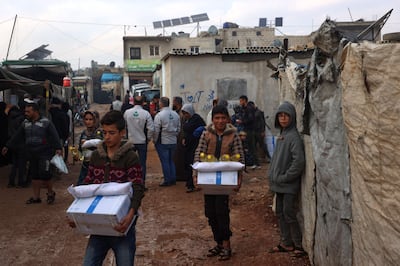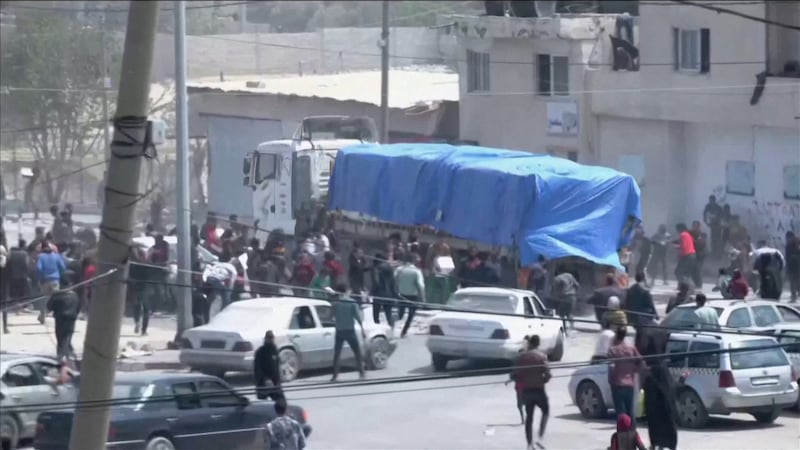Live updates: Follow the latest on Israel-Gaza
Gaza is the "most dangerous operation" for the World Food Programme of all its recent missions, the UN body's regional director for Mena and Eastern Europe Corinne Fleischer told The National.
WFP's aid workers not only risk being injured or killed by Israeli shelling and air strikes in the enclave, but also face further danger from the "breakdown in law and order", she said.
At least 200 humanitarian staff members have been killed in Gaza since Israel's war began on October 7, which the UN said is the deadliest conflict in history for aid workers.
"The numbers speak for themselves," Ms Fleischer told The National.
In February, the WFP suspended operations in northern Gaza, where 70 per cent of the population are facing "catastrophic levels of hunger", according to the UN. The suspension came after food convoys were being attacked by starving Gazans who did not know when their next meal would be, Ms Fleischer said.
"People were so hungry that as soon as the trucks would arrive, they would not only run to the trucks but jump on them, open the boxes and eat the food before bringing some back to their families."
As the security of both those distributing aid and receiving it is essential, Ms Fleischer said the WFP began negotiations with the Israelis to expand its operations and ensure that its staff were provided with a safe pathway to the north.
The WFP resumed its operation three weeks after the suspension and is now in talks to bring food through more access points.

Other crises 'forgotten'
The WFP operates in more than 120 countries and territories, with about 23,000 members of staff worldwide.
The wars in Ukraine and Gaza have overshadowed longer, protracted conflicts and humanitarian crises such as Syria, which have been "forgotten", Ms Fleischer said.
This has exacerbated the gap between the needs of people and the funding of aid groups such as the WFP, she said.
"Twelve years ago, we supported six million people. Now, we support 36 million – six times more," she said.
People are in more need of assistance not only due to new wars, but also climate change and economic shocks, she added.
The war in Ukraine "broke the camel's back", Ms Fleischer said, as food prices went up and needs soared to "record levels".

Yemen struggling
The focus on Ukraine and Gaza has also caused NGOs such as the WFP to downgrade operations in countries that rely heavily on assistance, such as Syria and Yemen.
In Yemen, the WFP used to feed 9.5 million people and is bringing that number down to 6.5 million due to lack of funds and worsening security.
"Now we have five governorates that are at a record high in levels of hunger, unlike anything we've seen since 2018t," Ms Fleischer said. "Acute malnutrition in children has gone up by 20 per cent."
In August last year, the WFP launched an appeal for Yemen, after announcing it would have to make cuts to its food assistance programme across the country by September if the funding gap was not bridged. The situation has since deteriorated.
The war in Gaza is the latest to erupt in the region but with Israeli-Iranian tensions on the horizon, Ms Fleischer said it was imperative not to allow another conflict to break out.
"What is brewing is quite big and a lot of efforts are being made not to have it," Ms Fleischer said.
Another war would "exceed all our capabilities".






